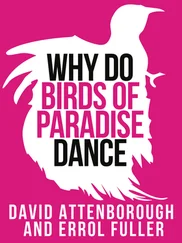“No, we’re fine,” Avis mumbles. She presses the window button and accidentally hits the lock instead. “ Postres, why would I want postres ? Do you not know what I do for a living?”
“You need more air?” Nina reaches for the climate control panel.
“No, please, nothing.”
They make a left on Douglas and stop at the intersection with Bird. The traffic is torturously slow with the erratic, newly-arriveds — immigrants and tourists — prone to rolling to a distracted stop mid-lane. As they wait, about eight cars from the light, a homeless person materializes between the cars near the intersection, wafting up the street toward them, flashing his wrecked, hand-lettered sign on a panel of cardboard box: Pleese help. I have wife and kid and no— He turns toward a white Cadillac several cars ahead before Avis can finish reading. Cadillac stuffs some bills into his jar. He turns back and begins drifting back toward them, a tall black man so emaciated Avis can see the fine bones of his scapula, the ribboned, muscles of his forearms; he looks burnt down to a shadow, a cinder in the blast of August sunlight.
Avis picks up her handbag.
“Oh no,” Nina says. “Please don’t.”
“Oh, for heaven sakes,” Avis mutters, rummaging in her bag. “I only want to give him a buck.”
“Too late,” Nina says, because the light’s changed, but they have to wait for the usual procession of yellow and red light — runners in the cross street. When they finally move, it’s only to inch up a few spaces before the light turns again, so they’re now a car length away from the man and his sign: job or hous. Im good person —
“Please, querida . I really do understand, but it’s better if you give the money to a homeless shelter or some sort of something…”
Avis ignores her, digging out her wallet, in which, she discovers, she has no small bills, only the fifties for Felice. The man is now making a beeline for them, his eyes round and hollow. Avis goes for the window button and instead hits the lock again. “Shit. How do you open this thing?”
“ Ay, mujer, why do you have to be so—”
“I want to help this guy out a little. What’s the big deal?” Now the man is standing on the other side of the window, peering in.
“He’s some scam artist. These guys, they make tons of money.”
“Well, then it’s a crappy job and he’s earned every penny!” Avis’s voice rises, stretching thin. Anger throbs in her temples as she grabs her door handle.
“What are you doing ?” Nina taps the accelerator, trying to scoot ahead, but now a row of skate punks and pedestrians is crossing in front of the car. The man on the other side of the window strolls alongside the car as they move a few feet. “That’s dangerous!”
Avis opens the car door and hands the man some fifties. His eyes roll from the cash to her face and she can see a fine, inflamed crimson web beneath his irises. “O Bondye mwen bon sou latè.” His voice is grainy and low, it sounds like crushed sugar. “Mèsi, pitit fi. Bondye beni ou.”
Flooded by a jolt of pleasure, she also hands him the silver cookie tin: he accepts, thunderstruck. “Cookies,” she says. “Pâtisserie.” His sign is tucked under his arm and his hands shake with tremors that rattle the tin like a snare drum. He tugs at the lid and for a moment Avis fears he isn’t strong enough to open it.
The light changes, Nina steps on it, and Avis slams the door shut. “I cannot believe you,” Nina says angrily. “What a waste.”
“Why? Because I wanted to help someone?” She turns in her seat in time to see him pry the tin open, cars swerving around him as he peers inside.
“That won’t help him — he’s just gonna go get drugs or some booze.”
“Good. I hope he enjoys it. I hope he has one moment of pleasure on this crappy earth.”
“I doubt he even has enough teeth to chew those cookies,” Nina adds bitterly. “He won’t know what to do with that sort of food. Let him go up to Overtown and get food.”
Avis is infuriated. “How is this any of your business?”
Nina starts to speak, stops, then, with her eyes narrowed, she says, “That negro viejo —he has nothing to do with your daughter!”
Avis’s lips part.
“Because they’re both outdoors — on the streets. Come on, don’t act dumb. Just because you gave to him doesn’t make things better for her. You do these stupid things like you think one is like the other.”
Avis feels another throb in her temples. Her fingers curl into her empty hands.
When they pull into Avis’s driveway twelve blocks later, Nina is calmer and she tries to mollify Avis, speaking in her modulated voice. “ Ven, cariña, hey, I’m sorry.” She touches her employer’s wrist. “I shouldn’t have tried to stop you. You were right — it — none of it was really my business.”
But the anger has a chemical grip on her. Avis shoulders her way out of the car door, then throws it shut without a backwards glance. Nina gets out of the car. “Please, Avis, can we just talk?” Avis keeps going, skipping the flagstone path and striding across the lawn. “It’s okay if you want to be angry,” Nina pleads. “But do you have to be this angry?”
Avis turns the key in the door. “Aren’t we still friends?” Nina calls, hands on her hips.
Avis steps inside and closes the door.
DURING THE YEAR OF Felice’s runaway attempts, Avis and Brian created their own protocol: call the Gables police, the sheriff’s department, the highway patrol. Contact the local FBI, the missing children help lines, her school. Place notices in the Herald and local newsletters. Send alerts to the National Runaway Switchboard. And they searched. They spent hours in their cars crawling through the streets of Coral Gables, Coconut Grove, Kendall, Hialeah, staring into yards and windows, spying on other people’s lives and families. Avis approached strangers in the street with photographs — which horrified Brian. He told her: That isn’t safe. And: You’re upsetting people . Some of the worst fights of their marriage were over those snapshots. Avis accusing him of caring more about appearances than about their own daughter. Brian said: We have to draw a line.
After two or three or four nights away, Felice would either come home by herself or the police would deliver her, followed by humiliating and protracted visits from social service counselors. But there were long, comparatively peaceful periods between these vanishings, during which Felice seemed to “return” to herself. As if she’d split into two separate girls. She settled back into school. She would be well-mannered; she helped Stanley with the dishes; she chattered with her father about soccer practice; she confided in her mother about her friends — but never about running away, why she kept leaving. Where she went when she was gone.
She tricked them — Avis thinks — every single time. They’d relax the curfew, relax their vigilance, enjoy a week, a few months, without incident. And just when Avis would tell herself (she wanted to believe it so badly) that their nightmare was ending — it would happen again.
Two months after Felice’s thirteenth birthday, Avis woke in the vinyl rocker in the den with dread like a slickness covering her skin. She knew, even as she was waking, that things weren’t right because she was in the vinyl chair — it sweated and stuck to her skin; it was where she waited and slept whenever Felice was missing. It was an uncomfortable chair so it helped her stay up late and wake early and it was a punishment place — for failing to keep her daughter at home.
Читать дальше












